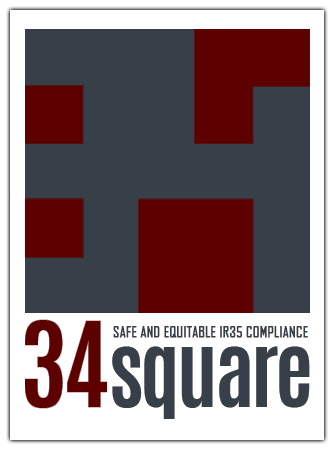Expert advice Q&A on IR35 for The HR Director Readership: Part 2

https://www.thehrdirector.com/features/miscellaneous/part-2-expert-ir35-compliance-advice-qa/
1: Is an IR35 status assessment tool compulsory?
No it isn’t. Medium and large enterprise clients are, however, legally obligated to take reasonable care in the determination of IR35 status when engaging a contractor. HMRC does not specifically state what reasonable care represents, but does give comprehensive guidance here: https://www.gov.uk/hmrc-internal-manuals/employment-status-manual/esm10014. Clients will need to ensure they can evidence they derived the status conclusion with a credible and robust method. There are a growing number of questionnaire-based assessment tools available. Any one of these should contribute to that evidence. A conclusion driven solely from an assessment tool isn’t necessarily 100% credible and robust though, especially given it is feasible to achieve different outcomes from different tools for the same engagement. A process that adds a credible qualitative dimension to a quantitative analysis likely has merit in strengthening clients’ position.
2: Is an IR35 status assessment from an assessment tool definitive and conclusive?
Some assessment tools provide one shot and charge a fee for that shot. Then, if you want to change some element and re-run, you pay again. Other tools or service providers offer greater flexibility to refine responses in order to achieve a target outcome. But no assessment tool provides a legally binding conclusion.
3: If an assessment tool isn’t conclusive, how can I be confident I have derived the correct IR35 status conclusion?
As a client, you are in fact, NOT obligated to derive a correct IR35 status conclusion. As long as you can demonstrate you took reasonable care in doing so, you are not liable for any back tax, national insurance or penalties in the event the conclusion is found to be incorrect. Arguably, if you have taken genuine reasonable care, the chances of getting it wrong are remote in any case, as the determining factors are nowhere near as complex as a growing industry might have you believe.
4: If the status determination process is outsourced, does that make the service provider responsible and liable instead of the client?
No it does not. The client retains the accountability for taking reasonable care and so should ensure they can evidence that a credible service provider and process has been deployed. Some service providers offer insurance or insurable outcomes. However, there are insurance pitfalls in this context. If a client has taken evidenceable reasonable care, they have no liability to insure against. If they have not taken reasonable care, then any resulting tax liability is, by law, NOT insurable.
5: If a client has no liability they can legitimately insure against, how come it’s legal to sell the insurance?
There is a scenario in which a liability can arise for the fee payer, either in a case where the client was found to derive an incorrect outside IR35 status having taken evidencable reasonable care, or in a case where any applicable tax and national insurance was not paid to HMRC for reasons other than legitimate business failure. Insurance for a fee payer may therefore be considered beneficial, albeit the extent to which the risks are material is arguably highly debatable.
In the former case of an incorrect outside IR35 status despite reasonable care being taken, will HMRC pursue the fee payer? HMRC’s agenda is most likely to ensure that clients are following due process and not abusing the system, and that largely HMRC revenue is legitimately flowing. Raising a dispute with a party that was not made originally liable for a determination possibly won’t be the most constructive route to ensuring ongoing compliance from clients. And if HMRC were to pursue such cases, then fee payers would simply be more inclined to insure against the prospect and render such a pursuit somewhat pointless, beyond the generation of some additional insurance premium tax. In the latter case of a failure with legally dubious origins to collect due tax and national insurance for an inside IR35 status, fee payers should simply ensure they are working with bona fide payroll providers.
In conclusion, if an evidenceably robust process has been followed, and if all parties in the chain are legitimate, bona fide organisations, the levels of risk associated with engaging contractors outside IR35 or inside, should likely not feature high up the risk register list for a client or a fee payer. There surely must be far greater risks from simply being in business, for which insurance is not a consideration.
